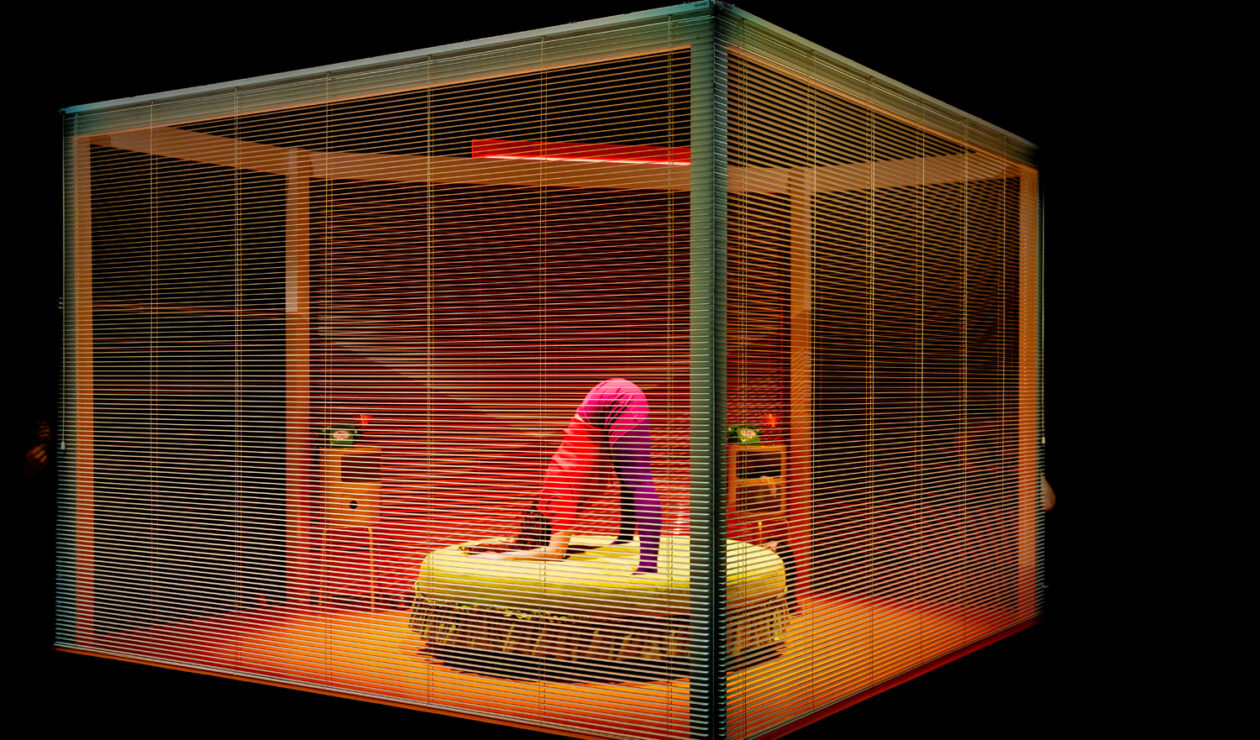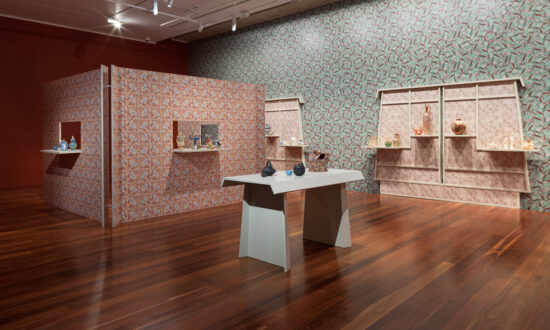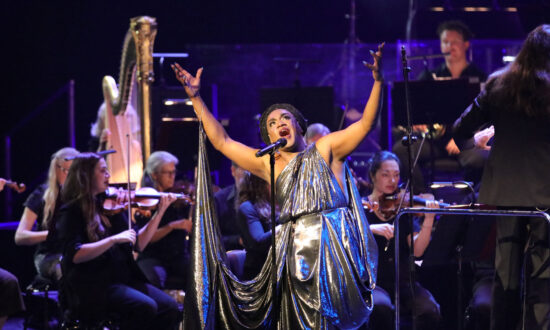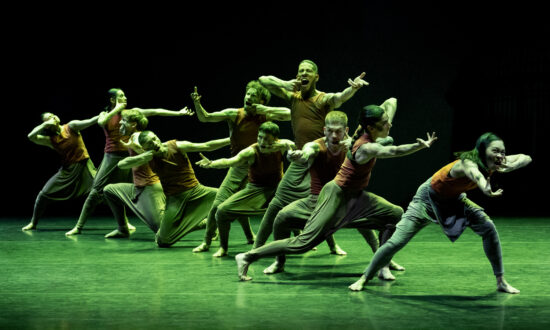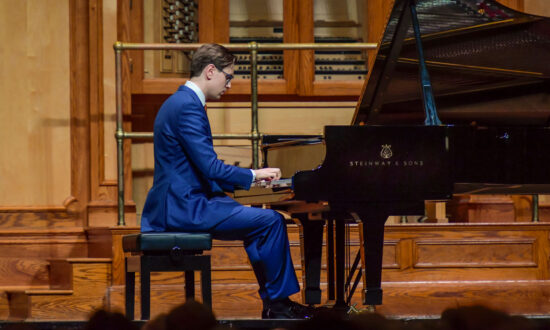The audience is seated on the floor of the Odean Theatre, mostly on stools and surrounded by four, raised, platforms where the performances take place.
Immediately, the seating choice is tied with the themes – people position themselves looking in different directions; we become a sea of humanity, both mingled and apart.
At the end, the floor becomes a kind of club scene – messages on tiny slips of paper rain down as singer Carla Lippis leads a danceable final number. As always with Restless, the cast is a mix of people with and without disability. While they have explored issues of intimacy before, this delves directly into themes of romantic love, sex and desire.
The performance takes the form of four vignettes, each developed by the performers with choreographer Michelle Ryan, creative producer and dramaturg Roz Hervey, and assistant director Daisy Brown.
Behind a translucent curtain, Michael Hodyl begins the theme with a romantic edge – a clever use of projections, audio, music performed by Lippis and live-action bring us into the world of a man looking for old-school love.
Hodyl is an elegant dancer, his weaving hands reaching for his romantic ideal, with letters to a future love appearing on the rear wall as he writes them.
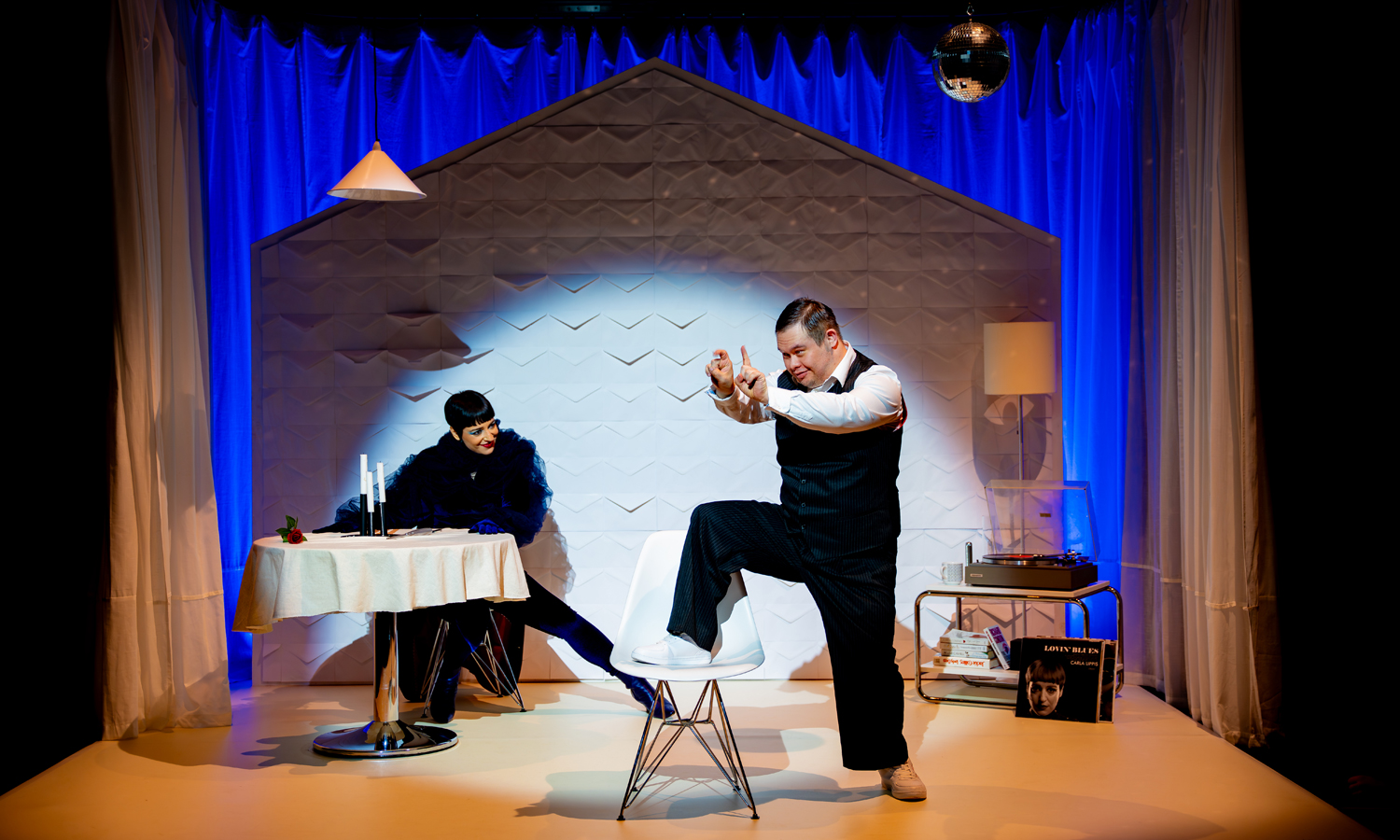
Michael Hodyl and Carla Lippis in Private View. Photo: Matt Byrne
Next, a box hidden by Venetian blinds on all sides hints at the reality that this work was developed during the earlier stages of the COVID pandemic. Arms and fingers reach between the slats, eventually opening to reveal a vibrant, crimson bedroom scene.
Dancers Jianna Georgiou and Madalene Macera revolve in this colourful space, taking old-school Polaroid “selfies”, spinning with desire. Georgiou calls a love “hotline”, with audience members on the other line, answering her curious and increasingly intimate questions.
The emotional heart of the piece comes next, with guest dancer Bonnie Williams in solo mode and Lippis adding beautiful touches with another song (“I am an unwashed coffee cup,” she sings).
Williams, who describes herself as proudly disabled, has worked with Restless as a teacher and her move to the stage in this piece is wonderful. Dressed in a slinky slip, her character takes us into a more intimate space. Projections of her dancing and, then, her face, close-up, allow her to duet with herself, in a sinuous and painful portrait of a woman in the throes of emotional loss. Williams’ cleverly moves from extreme vulnerability to agency – the latter being one of the subtle underlying themes of the entire piece.
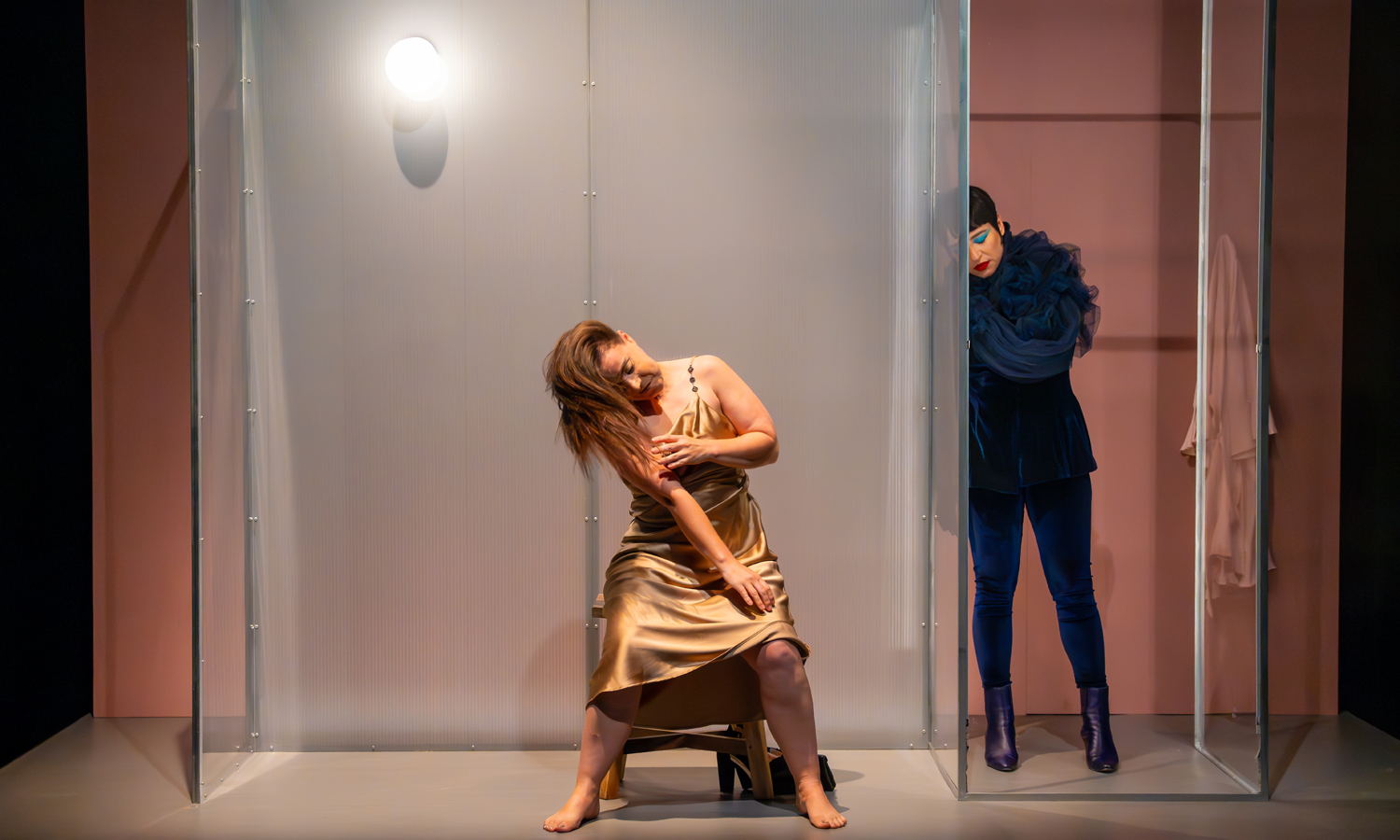
Bonnie William portrays a woman in the throes of emotional loss. Photo: Matt Byrne
In the final, playful scene, Charlie Wilkins and Darcy Carpenter embody a couple, flirting via text, with a third wheel, played by another regular Restless teacher Rowan Rossi, getting in their way.
The amusing vignette features a couch that slips apart and rolls around as the romantic interweaving intensifies. Wilkins’ and Carpenter’s amused characters are always in control, enjoying the literal and metaphorical dance.
While this is a personal piece for the dancers involved, Hervey says it was very important that this Private View would not put the individuals’ personal lives on show. Techniques included having an intimacy coordinator, naming the characters, and researching beyond the performers’ own experiences.
While not obviously set in any time or place apart from the present, there’s an appropriate swinging ’60s or ’70s feel to aspects of the production design and some of the costumes (particularly the Venetian blind vignette). Rotary dial phones play a role in the action and also in the very moving sound installation in the foyer (take some time to listen, before or after the show).

Get InReview in your inbox – free each Saturday. Local arts and culture – covered.
Thanks for signing up to the InReview newsletter.
Carla Lippis brings Liza Minnelli-in-Cabaret vibes to her central role which, while billed as “host” or “chief voyeur”, is also an empathetic connector within and between the disparate scenes and characters. Her powerful, soulful singing adds additional layers to the expressive work of the dancers – at times an encouragement, at others reflecting their pain, deeper hopes and secret dreams.
At one hour, the performance is short and many of the themes sweet. But the show’s impact on the audience will be lengthy and more complex, as it confidently, subtly dissolves unnecessary barriers to universal understanding.
Private View is playing at the Odeon Theatre in Norwood until March 9.
Read more 2024 Adelaide Festival coverage here.
Support local arts journalism
Your support will help us continue the important work of InReview in publishing free professional journalism that celebrates, interrogates and amplifies arts and culture in South Australia.
Donate Here
